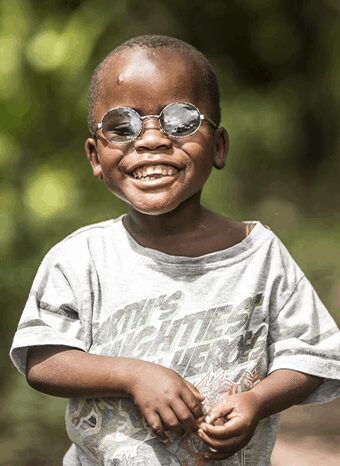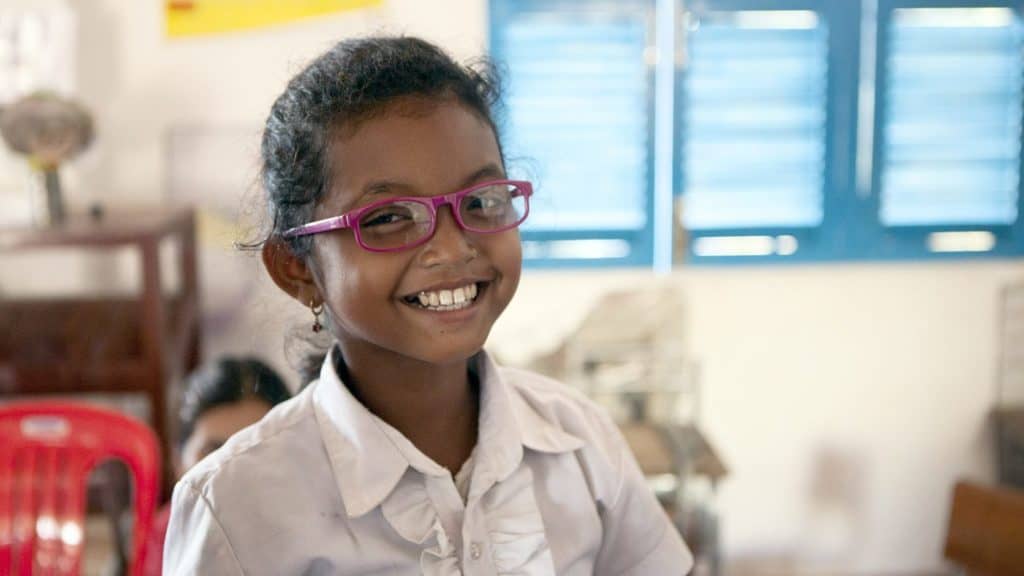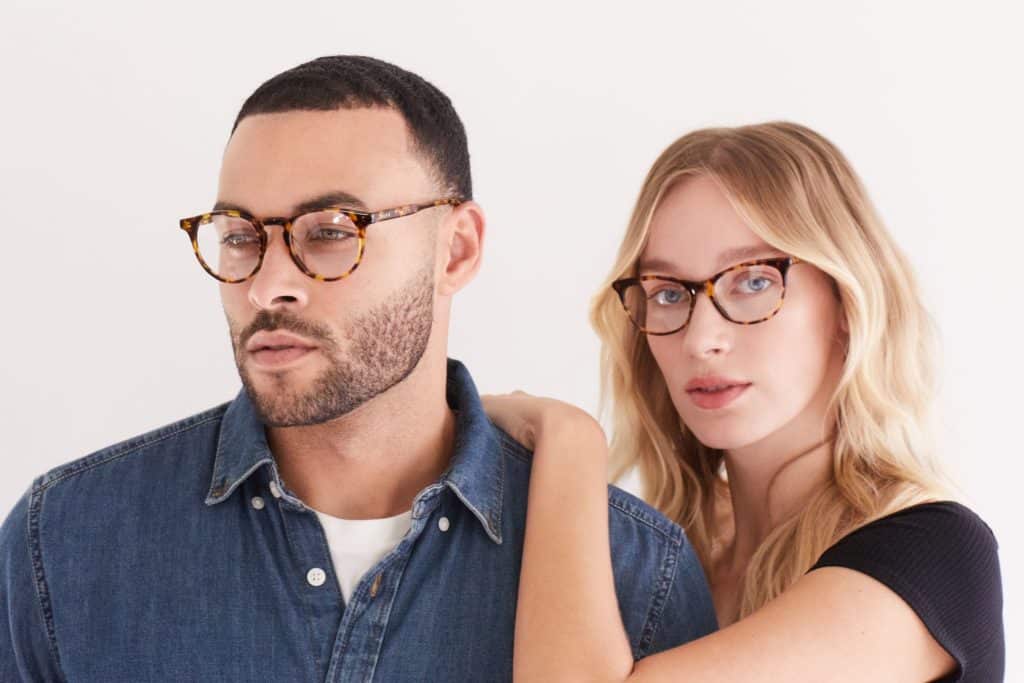In episode 36 of the Disruptors for Good podcast, I speak with Chad Dime, Co-founder of Diff Charitable Eyewear on building a brand that has impacted a million lives around the world.
Listen to more Causeartist podcasts here.
Chad got his start in the eyewear industry by working with his father, where he developed a passion for bringing something new to the current eyewear market. Chad co-founded DIFF Charitable Eyewear with hopes of being a global leader in the eyewear industry with a focus on giving back.



When DIFF Charitable Eyewear was founded, the vision was to have a positive impact on the world through quality, affordable eyewear. And in four years, the company has provided over 1.2 MILLION people with the reading glasses they need to live happy, healthy, and productive lives.
Over the past few years, they’ve learned that doing even more is possible. Diff is completely committed, more than ever, to creating a world in which everyone has access to the vision care they need — whether that’s an eye exam, surgery, glasses, or medicine.
Now through the expansion of their global mission, every pair of DIFFs sold helps provide the Gift of Sight, through their global partner SightSavers, because the brand truly believe VISION IS POWER.
This partnership will allow DIFF to help provide the gift of sight for every pair of DIFFs sold, through medicine, surgeries, glasses, eye exams, and more.
Interview Transcipt
Grant: Hello to everyone listening to the Disruptors for Good podcast, part of the Causeartist community. I have a simple question for you: Are you involved with any nonprofits or know individuals who are? My name is Steven Garten, I’m the founder of Charity Charge, the first and only no annual fee, no personal guarantee corporate credit card designed for nonprofits.
It’s an amazing way for the organizations you care about to improve their financial stability and reduce personal risk and liability for their employees. To learn more, check out CharityCharge.com.
00:38
Grant: Hey, everybody, this is Grant from Causeartist. I hope everyone had a great holiday season and is getting back into the normal flow of things. It can be tough, but here we are.
This is episode 36 of the Disruptors for Good podcast, and today we’re chatting with Chad Dime, the co-founder of Diff Charitable Eyewear. It’s incredible what he and his co-founders have done with Diff. To date, they’ve provided over 1.2 million people with reading glasses around the world. But like any organization, once you reach a certain goal, you have to strive for more.
Chad and his team are now focused on figuring out the next step in their impact. Their partnership with Sightsavers, which involves eye surgeries, medicine, and eye exams, is taking them to the next level.
Imagine buying a pair of glasses and helping someone on the other side of the world regain their vision. It’s a powerful time we live in, and Chad’s story is equally powerful. I hope you enjoy the listen. Chad’s story is full of little things that connected along the way, showing how following your passion can lead to incredible outcomes. Enjoy the episode!
04:04
Grant: The first question I always like to ask is about people’s journeys. How did you get to a point in your life where you took the leap to follow your passion and felt you had the skills to do so? What was that journey like for you to start Diff Eyewear?
Chad: My dad was an importer of eyewear for about 40 years, so I grew up around it. He recently retired at 75, but his company focused on affordable reading glasses and sunglasses.
I always knew I’d eventually work in the family business. I went to San Diego State for college, where I had an experience that really shaped my path. I was on the surf team, eventually becoming president, and we had sponsorships from various companies, including Toms for shoes.
I was inspired by their giveback model and other brands that were doing similar things. After college, I worked for my dad for about a year, but I was always drawn to the idea of starting a socially conscious brand. That inspiration, combined with my experience in the family business, led me to start something of my own.
06:03
Grant: You had a couple of co-founders, right? What were those early conversations like? Was there a light bulb moment when you decided to actually do this?
Chad: Absolutely. After college, I was working for my dad, trying to modernize the business by suggesting things like selling on Amazon, but he wasn’t interested. Around that time, I came across a company called Rave Shades, owned by my now-partner, Zach Gordan.
I reached out to him to see if we could collaborate, and he turned the conversation around, suggesting we partner up because he was looking for someone with manufacturing experience. We had a Skype call, and then he and his grandfather flew out to meet my dad and me. We shook hands over dinner, and that was about six years ago.
We’ve been business partners ever since. Our third partner, Chad Daring, was actually our competitor in the music festival industry, where we were selling unbranded eyewear. Eventually, we decided to team up with him as well, forming a really strong trio. Each of us brought different strengths to the table, and we’ve been best friends and business partners ever since.
09:50
Grant: When you had that first Skype call and Zach came out to meet you and your dad, was the giveback model already part of the conversation? Or was it more about starting an eyeglass company?
Chad: Initially, it was more about figuring out how to start a business. The idea of a charitable company didn’t come up right away. We spent a few years selling glasses at music festivals and learned a lot from that experience. We realized that millennials, in particular, were drawn to socially conscious brands that had a heart and a story.
They weren’t loyal to traditional brands like Ray-Ban. Instead, they were looking for something new, affordable, and meaningful. That’s when we started thinking seriously about creating a brand that gave back. By the time we officially partnered up, we knew from day one that our brand was going to be charitable. It was something that resonated with all of us, and we saw a market for it.
13:19
Grant: Once you decided on the charitable aspect, what were the first steps? Did you already know of nonprofits to partner with, or did you have to start from scratch?
Chad: I love this question. We each had different strengths, and I was really passionate about the charitable aspect. My dad had a customer named Sherry Grigsby, who ran a nonprofit called Eyes on Africa.
She was buying affordable glasses from my dad’s company to take to Africa, where she was doing incredible work. When we started Diff, I reached out to her and said, “Stop buying the glasses. We’re going to donate them to you.” That’s how our buy a pair, give a pair program started.
Sherry was thrilled, and we continued to work with her for many years. As we grew, we needed to adapt and find new partners to handle the volume we were producing. That led us to Sightsavers, who not only distribute glasses but also provide eye surgeries, medicine, and education. It’s a much more sustainable impact model, and it’s allowed us to scale our giving.
16:59
Grant: As you scaled, how did you decide on Sightsavers? Did Sherry refer you to other nonprofits, or did you find them on your own?
Chad: We did a lot of research and learned that reading glasses alone weren’t always the most sustainable solution. We wanted to make sure our impact was long-lasting, so we started looking for partners who could offer a broader range of services.
That’s how we found Sightsavers. They do incredible work, from training local doctors to perform cataract surgeries to distributing affordable medicine and running health workshops.
This partnership has allowed us to make a more comprehensive impact, ensuring that we’re not just giving out glasses but also addressing the root causes of vision problems.
19:58
Grant: It’s amazing how your giving model has evolved. I’ve noticed that many social impact brands are moving away from the one-for-one model and focusing on long-term, sustainable impact. How do you see this trend evolving?
Chad: You’re absolutely right. The one-for-one model is easy for consumers to understand, but we’ve realized that there’s so much more we can do. For example, we learned that in some communities, education about eye health is just as important as the glasses themselves.
By partnering with organizations like Sightsavers, we’re able to provide not just products but also knowledge and resources that have a lasting impact. We’ve also launched a programme in rural Uganda, where we work with local tailors to create eyeglass pouches from locally sourced materials.
This initiative not only provides employment but also supports education in the community. It’s been incredibly rewarding, and it’s an example of how we’re trying to think beyond just giving products and focus on empowering communities.
28:23
Grant: It’s amazing how that program in Uganda came about. It’s also impressive that it started from a conversation with someone who initially declined your offer. How has that program grown, and what impact has it had?
Chad: The program has been a huge success. We started by partnering with a local school and employing women in the community to make eyeglass pouches. These pouches are now sold at major retailers like Dillards and Nordstrom, and the proceeds go back into the community.
The school has seen incredible improvements, from new classrooms to playgrounds, all funded by this program. It’s been amazing to see the impact we’ve had, not just in terms of providing jobs but also in improving education and infrastructure in the community.
And the best part is, the woman who started this program with us, Kelsey Saibot, is now working for Diff as our charity manager. It’s come full circle, and we’re incredibly proud of what we’ve built.
33:53
Grant: It’s fantastic to see how the industry is evolving, with big retailers getting involved and making these products more accessible. What do you see as the next step for Diff and other social impact brands?
Chad: The next step is definitely about making it easier for consumers to discover and buy these products. The fact that you can now walk into a store like Nordstrom and find socially conscious brands is a huge win. It’s also about continuing to innovate and think about how we







